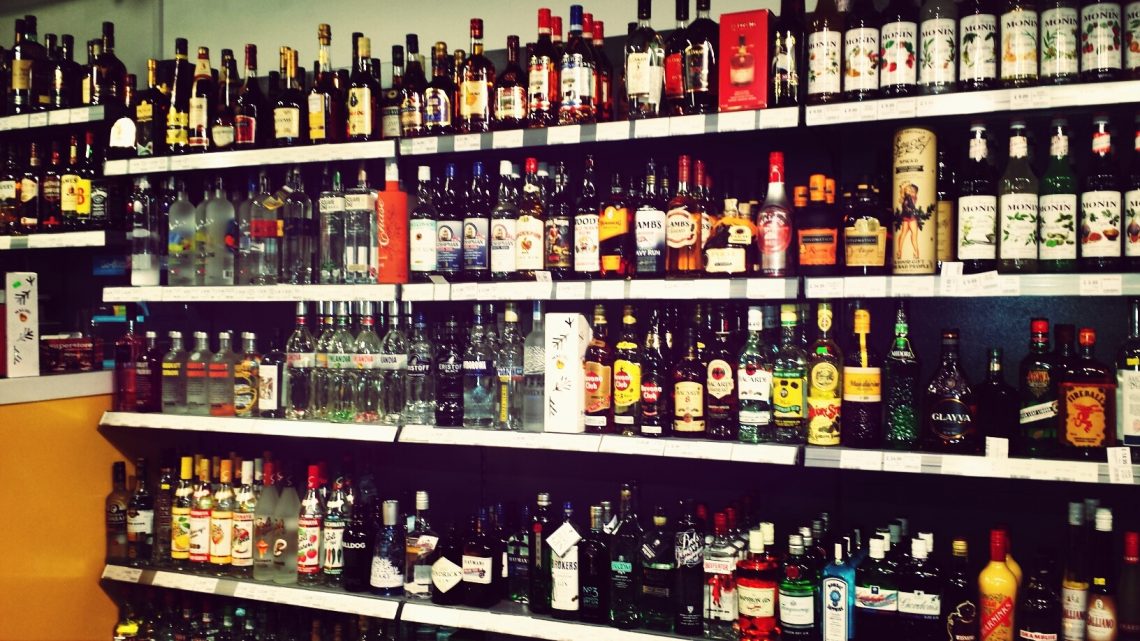
Why Liquor Stores Should Be Considered ‘Essential Businesses’ During Quarantine
March 25, 2020At lunchtime on Monday, Denver Mayor Michael Hancock announced that liquor stores and marijuana dispensaries were among the "non-essential businesses" that would be closed from Tuesday afternoon until at least April 10 as part of the city's response to coronavirus.
"We do not have [liquor stores] listed as essential,” Hancock said, according to The Denver Post. “As much as I might think it’s essential for me, it’s not essential for everyone.”
By 5 p.m., he'd changed his mind, and amended his just-released Public Health order. "Liquor stores with extreme physical distancing in place will be exempt," the City of Denver tweeted. "All marijuana stores with extreme physical distancing in place will be exempt."
But the mayor's abrupt 180—and his suggestion that everyone should stock up on booze on Monday night—resulted in the opposite of "extreme physical distancing," with alcohol retailers reporting block-long lines and swarms of people trying to get into stores. New York governor Andrew Cuomo has also allowed his state's spirits vendors to remain open—and one New York City store said that it just had the best day of sales in its 50-year history.
"It was a shock to us in fact. The first day [of orders] I thought there was a problem with the computer system," Astor Wines and Spirits COO Rob Fisher told Spectrum News NY1. "I think there was panic, people wanted to hoard.”
As of this writing, state-run ABC stores or liquor retailers are still fully operational in a number of states, including California, Connecticut, Illinois, Maryland, Massachusetts, Michigan, New Hampshire, Oregon and Texas. Virginia and Utah have both announced that their ABC stores will remain open, albeit with shortened hours. Alabama has gone to curbside sales, and an emergency order in Arkansas now allows liquor stores to make deliveries.
On Tuesday, the Pennsylvania Liquor Control Board closed all 600 of its stores, making it the first state to cut off the sale of spirits entirely (although beer and wine are still available in grocery stores). Governor Tom Wolf is reportedly second-guessing that decision, in part because of the way those closures could indirectly impact the state's hospitals and medical providers.
"I’m trying to understand the thinking in other states. On the one hand, this can be considered a nonessential function," Wolf said. "On the other hand [...] this sometimes gets to be a health issue for those with a substance use disorder."
Wolf is right: Complete loss of access to liquor could be a serious health concern for those who are living with serious alcohol dependencies. VICE reached out to Dr. Ken Starnes, an emergency department doctor based in Missouri, to learn why the decision to keep liquor stores open could be such a surprisingly important one.
"To give a little background, alcohol is considered a depressant, just like Xanax and Valium, things like that. In your brain, you have neurotransmitters and neuroreceptors, and a chemical works on a receptor and makes the brain cell work, basically," Starnes said.
"One of those chemicals is called GABA, and it's the down-regulating chemical in your brain. It's the mute button. When you introduce alcohol, it acts on GABA receptors, and sort of chills things out a little bit [...] But when you introduce that chemical into your body, then your body stops making it, and as long as you continue to add that exogenous chemical, and you get more and more of it, then everything's fine."
Everything stops being fine when someone with a dependency can't get alcohol—or they can't get enough alcohol—and the symptoms of withdrawal can reach their terrifying peak within 72 hours of that person's last drink. "It's a spectrum that starts with agitation, nausea and basic hangover symptoms, and then it can progress to your central nervous system," Starnes said.
"You can get rapid heartbeat, high blood pressure, hallucinations, and extreme agitation. That's when we move into medical treatment. We don't hospitalize everybody, but if you're a heavy drinker—somebody who drinks more than seven or eight beers a day—and you come into the emergency department saying 'I want to detox,' I'm going to admit you. Most doctors are going to admit you, because it can progress to the point of central nervous system collapse. I have seen people die from this. It's rare, but it happens." Starnes explained that some severe cases of withdrawal result in the patient being placed into a medically induced coma, which requires intubation and a ventilator.
And not every emergency department is capable of handling an extra critically ill patient during this ongoing pandemic. "We're not sending them home, and, right now, that can be another challenge for an already overtaxed medical system," he said.
"I get wanting to shut things down as much as possible. I'm screaming at people to stay home and stay away from other people as much as possible, because I know what's going on. I got into this business to save people, and the idea that I would have to terminally extubate somebody, or that I'm going to have to decide 'You live and you die' and I'm not... if it gets to that point, there's going to be some mental health crises after that."


